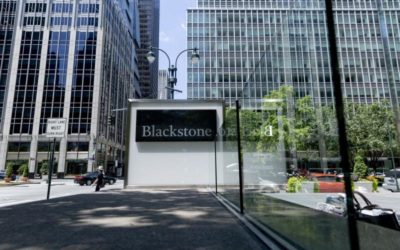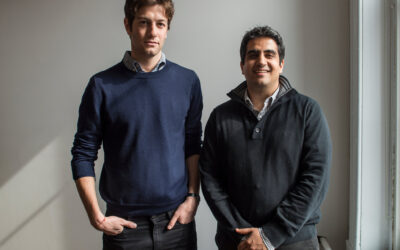Kinnevik has reaped the benefits of its two “big bets” on digital healthcare and online grocery start-ups after demand for remote services soared during the pandemic, but Europe’s largest listed investor in technology companies rejected comparisons with Japanese conglomerate SoftBank.
Chief executive Georgi Ganev told the Financial Times that the Swedish group had a strong record of taking money from its established listed companies — which currently include online retailer Zalando and telecoms operator Tele2 — and investing it in fast-growing companies in new industries such as Livongo in healthcare and Kolonial in groceries.
He called the push to invest more in privately held start-ups the “third pivot” of Kinnevik’s history, after its initial switch from pulp and paper into telecoms and media in Sweden in the 1990s and then into online companies such as Avito, Rocket Internet and Zalando in the 2010s.
“Thanks to this pandemic the accelerated digital behaviour has really helped the speed of that transformation. All of a sudden, all these investments become less risky than traditional industry,” he added.
Kinnevik’s shares have more than doubled in the past six months since most countries imposed lockdowns due to Covid-19, giving it a market capitalisation of SKr94bn ($11bn).
Mr Ganev said Kolonial, a Norwegian online groceries start-up it invested in two years ago, had increased the number of customers 10-fold during the pandemic and become profitable two years ahead of schedule.
Meanwhile, US virtual care company Teladoc Health last month agreed to pay $18.5bn for Livongo, leaving Kinnevik — which has a 13 per cent stake in the digital healthcare group — sitting on gains of 10 times its investment.
One Swedish investor said Kinnevik “could be Europe’s answer to SoftBank”, the Japanese group that made a series of large investments in US and Asian start-ups but has suffered high-profile problems such as the failed IPO of WeWork last year.
However, Mr Ganev rejected the comparison. “We are quite different,” he said. “We are not that aggressive when it comes to valuations. You tend to be more disciplined when you don’t have the capital, and we say excess capital will be distributed to shareholders.”
He added that Kinnevik’s “philosophy and methodology” was to invest small amounts at the beginning. “Maybe we miss out if there’s hockey-stick curve growth but it’s less risky,” he said.
Finding the exact comparison for Kinnevik, which Mr Ganev described as “an evergreen fund” with permanent capital, is tricky. It argues it is not like a private equity firm because it aims to keep holdings for decades, and that being listed means it has the “stability, liquidity and good governance” of a public company, rather than being a private venture capital fund.
Mr Ganev said Kinnevik felt its exposure to early growth companies was too low, at about 10 per cent of its portfolio, when he took over as chief executive in 2018. The group has since sold down its shareholding in Zalando twice and used the proceeds to boost its exposure to digital healthcare through investments in Cityblock, Cedar and VillageMD. Its growth portfolio, including Livongo, now accounts for about a third of its total assets.
Kinnevik’s chief executive said the rally in technology valuations could have further to go but said a correction was likely “over time”. He added: “Of course we are cautious to invest too much at the top of the cycle.”
But he stressed that the pandemic had altered consumer behaviour, spurring changes that Kinnevik originally anticipated would take “three to four years” to occur in “three to four months”, such as digital healthcare going from “a nice-to-have feature” to “the only way to keep up with demand” for providers.
“We think there will be some kind of new normal after this pandemic but we won’t go back to how it was before,” Mr Ganev said, pointing to the Sars epidemic doubling demand for online groceries in some countries.
Source: Financial Times
Can’t stop reading? Read more
US Pipeline Operator ONEOK Inks Two Deals for $5.9 Billion
US pipeline operator ONEOK Inc. agreed to buy a Permian Basin rival and a controlling stake in...
Blackstone Is Said to Seek A$5.5 Billion Loan for AirTrunk Bid
Private equity firm Blackstone Inc. is in discussions with banks for a five-year loan of about...
Thrive Capital to lead multi-billion dollar OpenAI investment round at $100bn valuation
OpenAI, the company behind the popular AI tool ChatGPT, is in advanced talks to secure several...




